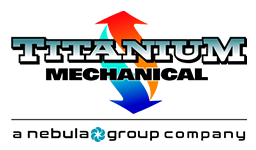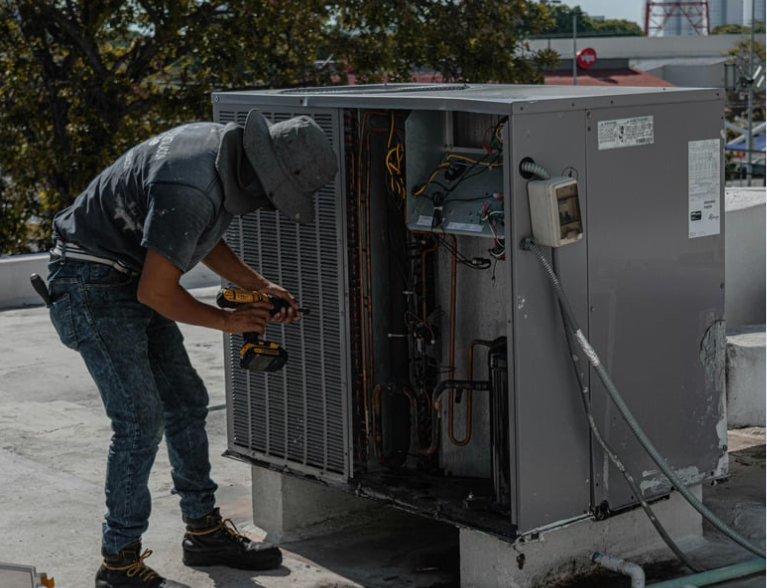Business operations depend on maintaining comfortable indoor environments that keep employees productive and customers satisfied throughout the year. Professional commercial HVAC service Toronto companies provide ensures systems run efficiently while minimizing downtime that disrupts daily operations. These skilled technicians understand the unique demands of commercial buildings and deliver solutions that restore comfort quickly when problems arise.
Commercial System Complexity
Commercial heating and cooling systems operate on a much larger scale than residential units, requiring specialized knowledge and equipment. Multi-zone systems control different building areas independently to maximize comfort and energy efficiency. Rooftop units handle massive air volumes while maintaining precise temperature and humidity levels.
Building automation systems integrate HVAC controls with lighting, security, and fire safety systems. Variable air volume systems adjust airflow based on occupancy and usage patterns. These complex networks require technicians who understand commercial-grade equipment and control systems.
Preventive Maintenance Programs
Regular service schedules prevent costly breakdowns during peak heating and cooling seasons when businesses need reliable climate control most. Filter changes maintain air quality while protecting expensive equipment from dust and debris buildup. Belt inspections prevent sudden failures that shut down entire systems.
Refrigerant level checks ensure optimal cooling performance while preventing compressor damage. Electrical connection inspections identify loose wires before they cause system failures. These routine tasks extend equipment life while maintaining peak performance throughout demanding commercial use.
Emergency Response Capabilities
System failures during business hours create urgent situations that demand immediate professional attention. After-hours breakdowns threaten inventory, equipment, and employee comfort when temperatures reach extreme levels. Weekend service calls restore operations before Monday morning business activities begin.
Skilled technicians carry diagnostic equipment that quickly identifies problems and solutions. Service vehicles stock common replacement parts for immediate repairs. Radio dispatch systems coordinate multiple service teams during busy periods when several calls need simultaneous attention.
Energy Efficiency Optimization
Older commercial systems waste energy through outdated controls and worn components that reduce overall efficiency. Smart thermostats provide precise temperature control while reducing energy consumption during unoccupied periods. Variable speed motors adjust power usage based on actual heating and cooling demands.
Air sealing services prevent conditioned air loss through building envelope gaps. Ductwork inspections identify leaks that waste energy and reduce system performance. These improvements lower utility bills while improving occupant comfort throughout commercial spaces.
Indoor Air Quality Management
Commercial buildings require excellent air quality to maintain healthy work environments and comply with safety regulations. Ventilation system cleaning removes accumulated dust, pollen, and contaminants that affect air purity. Filter upgrades capture smaller particles that basic filters cannot handle effectively.
Humidity control systems prevent mold growth while maintaining comfortable moisture levels. Air purification equipment removes odors, chemicals, and biological contaminants from indoor air. These services create healthier environments that reduce sick days while improving worker productivity.
System Upgrades and Retrofits
Aging HVAC equipment becomes inefficient and unreliable as components wear out over years of heavy commercial use. Modern replacement systems offer improved energy efficiency and better temperature control throughout large buildings. Programmable controls reduce operating costs while maintaining optimal comfort levels.
Heat recovery systems capture waste heat from exhaust air to preheat incoming fresh air. LED lighting retrofits reduce heat loads while cutting electricity costs. These upgrades provide immediate benefits while positioning businesses for long-term operational savings.
Seasonal Preparation Services
Winter readiness checks ensure heating systems operate reliably during cold months when failures create serious comfort and safety issues. Spring tune-ups prepare cooling systems for summer heat loads that stress equipment to maximum capacity. Fall inspections identify problems before heating season demands peak performance.
System startups verify proper operation after seasonal shutdowns or equipment installations. Refrigerant charging ensures optimal cooling capacity during hot weather periods. These seasonal services prevent unexpected failures during extreme weather conditions.
Compliance and Code Requirements
Commercial buildings must meet specific ventilation and safety codes that differ from residential requirements. Licensed technicians understand local building codes and health department regulations. Proper documentation proves compliance during inspections and insurance reviews.
Safety system testing verifies emergency ventilation and smoke evacuation equipment operates correctly. Gas line inspections ensure safe operation of heating equipment. These compliance services protect businesses from liability while maintaining safe working environments.
Cost-Effective Service Solutions
Service contracts provide predictable maintenance costs while ensuring priority response during emergencies. Bulk purchasing agreements reduce parts costs for businesses with multiple locations. Energy audits identify cost-saving opportunities that reduce long-term operating expenses.
Repair versus replacement analysis helps businesses make informed decisions about aging equipment. Warranty programs protect against unexpected repair costs while providing peace of mind. These financial strategies help businesses budget effectively for HVAC expenses.
Technology Integration Benefits
Smart building systems monitor HVAC performance remotely while alerting service teams to developing problems before they cause failures. Mobile apps allow facility managers to adjust settings and monitor energy usage from anywhere. Predictive analytics identify maintenance needs based on equipment performance trends.
Remote diagnostics enable technicians to troubleshoot problems without site visits when possible. Cloud-based monitoring tracks system performance over time to optimize efficiency. These technological advances reduce service costs while improving system reliability.
Professional HVAC services ensure commercial buildings maintain comfortable environments that support business success. Skilled technicians combine technical expertise with customer service to deliver solutions that meet specific business needs. Regular maintenance and prompt repairs protect your investment while keeping operations running smoothly year-round.

